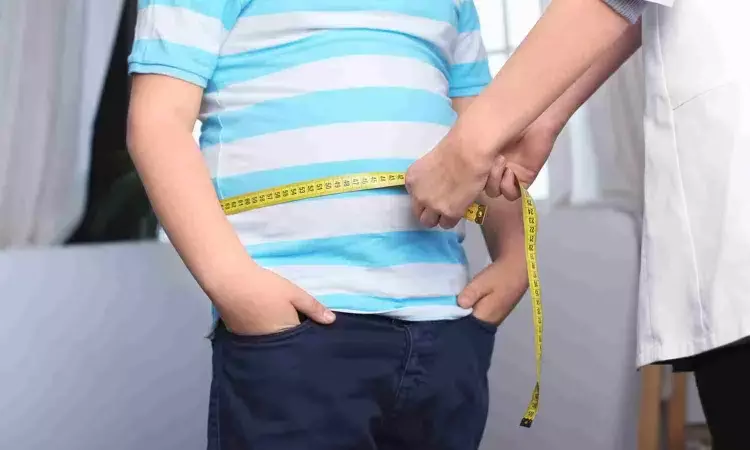- Home
- Medical news & Guidelines
- Anesthesiology
- Cardiology and CTVS
- Critical Care
- Dentistry
- Dermatology
- Diabetes and Endocrinology
- ENT
- Gastroenterology
- Medicine
- Nephrology
- Neurology
- Obstretics-Gynaecology
- Oncology
- Ophthalmology
- Orthopaedics
- Pediatrics-Neonatology
- Psychiatry
- Pulmonology
- Radiology
- Surgery
- Urology
- Laboratory Medicine
- Diet
- Nursing
- Paramedical
- Physiotherapy
- Health news
- Fact Check
- Bone Health Fact Check
- Brain Health Fact Check
- Cancer Related Fact Check
- Child Care Fact Check
- Dental and oral health fact check
- Diabetes and metabolic health fact check
- Diet and Nutrition Fact Check
- Eye and ENT Care Fact Check
- Fitness fact check
- Gut health fact check
- Heart health fact check
- Kidney health fact check
- Medical education fact check
- Men's health fact check
- Respiratory fact check
- Skin and hair care fact check
- Vaccine and Immunization fact check
- Women's health fact check
- AYUSH
- State News
- Andaman and Nicobar Islands
- Andhra Pradesh
- Arunachal Pradesh
- Assam
- Bihar
- Chandigarh
- Chattisgarh
- Dadra and Nagar Haveli
- Daman and Diu
- Delhi
- Goa
- Gujarat
- Haryana
- Himachal Pradesh
- Jammu & Kashmir
- Jharkhand
- Karnataka
- Kerala
- Ladakh
- Lakshadweep
- Madhya Pradesh
- Maharashtra
- Manipur
- Meghalaya
- Mizoram
- Nagaland
- Odisha
- Puducherry
- Punjab
- Rajasthan
- Sikkim
- Tamil Nadu
- Telangana
- Tripura
- Uttar Pradesh
- Uttrakhand
- West Bengal
- Medical Education
- Industry
Treatment for children with obesity has lasting effect, unravels JAMA study

When children with obesity undergo weight-loss treatment, the effects have repercussions later in life and the risk of serious health problems and premature death is lower as they reach young adulthood. However, this is not the case for depression and anxiety, a study from Karolinska Institutet published in JAMA Pediatrics reports.
The study shows that children and adolescents who respond well to obesity treatment are less likely to develop obesity-related diseases, such as type 2 diabetes, hypertension and dyslipidaemia (abnormally high levels of fat in the blood) as young adults.
The treatment studied involved support for children with obesity and their families designed to motivate healthy diets, exercise and sleep habits – what is known as “behavioural lifestyle therapy”.
“The results are very good news,” says Emilia Hagman, docent at the Department of Clinical Science, Intervention and Technology. “Whether or not the treatment of obesity in childhood has long-term health benefits have been debated, since weight-loss is hard to maintain.”
The study shows that children with obesity who respond to treatment also run a lower risk of premature death. A previous study, published in PLOS Medicine by the same research group, has shown that children with obesity have a much higher mortality risk in early adulthood, and were much more likely to die from suicide and somatic conditions. Just over a quarter of deaths were obesity-related.
“This emphasises the importance of providing early treatment, as we know that timely intervention increases the likelihood of success and helps mitigate the long-term health risks associated with obesity” says Dr Hagman.
However, the risk of depression and anxiety was not affected by the treatment outcomes in childhood, the JAMA Pediatrics paper shows. No matter the outcome of obesity treatment in childhood, the risk of anxiety and depression was unchanged in young adulthood.
“It has been believed that weight loss could decrease symptoms of depression and anxiety, but we can now show that it’s not the case,” says Dr Hagman. “Even though there’s a link between the two comorbidities, they must be treated in parallel.”
The study included over 6,700 individuals who had received treatment for obesity during childhood identified via the BORIS register (the Swedish Childhood Obesity Treatment Register) and who were then followed up as young adults in the Swedish Patient Register, the Prescribed Drugs Register and the Cause of Death Register. A control group from the general population was also used, matched by age, sex and place of residence.
GLP1 analogues, which have become popular obesity drugs in recent years, were not part of the study as they were yet approved when the study participants were being treated for obesity. As Dr Hagman points out, it is still uncommon for this type of drug to be administered to children.
“I’m in favour of their use as these drugs eases feelings of hunger, which is something that some children struggle with” she says. “That said, lifestyle therapy is still the foundation of all treatments for childhood obesity.”
The research group will now be trying to identify therapy options that are most effective for different individuals and the health/risk markers that are significant for future health.
Reference:
Putri RR, Danielsson P, Ekström N, et al. Effect of Pediatric Obesity Treatment on Long-Term Health. JAMA Pediatr. Published online January 21, 2025. doi:10.1001/jamapediatrics.2024.5552
Dr Kamal Kant Kohli-MBBS, DTCD- a chest specialist with more than 30 years of practice and a flair for writing clinical articles, Dr Kamal Kant Kohli joined Medical Dialogues as a Chief Editor of Medical News. Besides writing articles, as an editor, he proofreads and verifies all the medical content published on Medical Dialogues including those coming from journals, studies,medical conferences,guidelines etc. Email: drkohli@medicaldialogues.in. Contact no. 011-43720751


